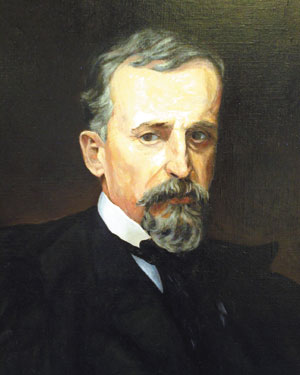Raised during the era of Poland's partitions and the cultural oppression of the nations surrounding this vulnerable land, Sienkiewicz attempted to fan the coals of patriotism among his countrymen. It has been reported that Poles would pin pages of Sienkiewicz's books to their clothing as reminders of their struggle for freedom. Sienkiewicz pleaded on behalf of his oppressed compatriots by addressing open letters to the governments and prominent men of Europe, protesting against the acts of injustice which victimized his nation. Notably, in 1901, he exposed the persecution of Polish school children at the hands of the Prussian government. Throughout his lifetime, Sienkiewicz sought to prepare his nation's people to be citizens of a reborn country to which he pointed the way, but did not live to see. Two years after his death, Poland's boundaries were restored and once again assured her rightful place in the roster of nations. Among Sienkiewicz's other major literary works are: The Trilogy, (composed of three historical novels set in the 17th Century, With Fire and Sword, The Deluge, Fire in the Steppe), The Teutonic Knights, In Desert and Wilderness and After Bread, Letters From America. These last works were inspired by Siekiewicz's trip to America. |
For additional information on Henryk Sienkiewicz,
please refer to
